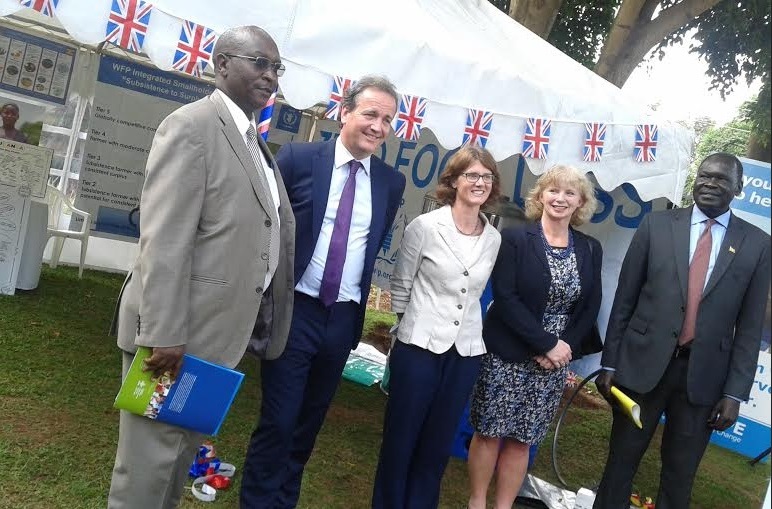
The imminent closure of Kenya’s Dadaab refugee camp will stretch Uganda’s already meagre resources for refugees, Hilary Onek, the country’s minister of relief, disaster preparedness and refugees has said.
“Uganda is experiencing an influx of refugees who have been living in neighbouring countries but have now been chased,” Onek said.
“We want the international community to help us and see how to relocate those who have been living in other countries.”
Kenya plans to close the Dadaab refugee complex by November— a development which is being criticised by the humanitarian community.
Dadaab was opened in 1991, as temporary shelter for Somalis fleeing civil war but prolonged violence and insecurity have turned it into the world’s largest refugee complex. It hosts about 340,000 refugees mainly from Somalia.
But Kenya says Dadaab has become a den for al-Shabab armed group and that it is a strain on the country’s economy.
When Kenya closes Dadaab refugee camp, Onek said, Uganda expects an influx of refugees from Somalia.
“We may not have space to keep them and that is why we want the international community to help us and take them to other countries.” Onek said Uganda already hosts up to 70,000 Somalis.
He was speaking on Thursday during a meeting with Nick Hurd, the UK’s Parliamentary Under-Secretary of State for International Development at the British High Commissioner’s residence in Kampala.
In 2016, Uganda received 65,000 refugees and asylum seekers predominantly from South Sudan, DR Congo and Burundi bringing the total population to about 540,000.
Hurd was on a two-day visit to Uganda to gain an insight into approaches being tested and implemented in Uganda to provide solutions to the protracted refugee crisis.
At the High Commissioner’s residence, actors at the forefront of shaping durable and innovative solutions to the refugee situation in Uganda showcased some of their projects and programmes.
These innovations included improved agriculture, use of data to inform livelihood choices and track change, provision of clean energy and strengthening of social service delivery for refugees and their host communities.
Uganda is currently host to more than half a million refugees and asylum seekers, making it the third largest refugee hosting country in the region after Ethiopia and Kenya, and the eighth largest in the world.
Uganda is widely recognized as having progressive and forward-thinking refugee and asylum policies. Upon receiving refugee status, refugees are settled in villages integrated within local host communities; an approach that has been praised for promoting social cohesion.
In 2016, Uganda has received 65,000 refugees and asylum seekers predominantly from South Sudan, DR Congo and Burundi bringing the total population to about 540,000.
The country also hosts other refugees from South Sudan, the Democratic Republic of Congo, the Central African Republic, Iraq, Afghanistan, Rwanda, Eritrea, Sudan and Pakistan.
As the emergency response for new arrivals seeking safety and protection continues, Uganda has incorporated refugees into its second national development plan under the settlement transformative agenda—a specific strategy that aims to foster sustainable livelihoods for refugees and host communities.
It will be complemented by the refugee and host population empowerment (ReHope) strategic framework that brings together the government of Uganda, development partners, the World Bank and UN agencies.
Onek said Uganda is committed to making the refugees’ stay in Uganda fairly comfortable. There are plans to make refugees get reasonable shelter as soon as they arrive in Uganda. The new shelter policy will see a refugee family get a unit cost of $600 to put up decent housing in the camps.
The World Bank has also given Uganda a $50 million soft loan to develop refugee camps’ infrastructure that will benefit both refugees and host communities (health centres, schools and roads) to facilitate their long stay in the country.
Pleased to visit #Uganda for first time . Stability of this country important for UK national interest.
— Nick Hurd MP (@nickhurdmp) June 16, 2016
Still, Uganda is calling for more help from the international community to support its refugee hosting.
“The UK government is particularly called upon, in the spirit of burden sharing, to make resources available to help in skilling refugees once they arrive in the country.”
Hurd said the UK remains committed to continuing its support to these initiatives and the implementation of creative solutions to address Uganda’s protracted crises.
Re-affirming UK support for the Ugandan approach to refugee management, Hurd said “The UK government applauds Uganda for its progressive approach to hosting its large refugee population.
“We look forward to continuing our partnership promoting self-reliance under the settlement transformative agenda and refugee and host population empowerment programme (ReHope).”
Uganda also hosts other refugees from South Sudan, the Democratic Republic of Congo, the Central African Republic, Iraq, Afghanistan, Rwanda, Eritrea, Sudan and Pakistan.
He said the UK is the second largest humanitarian donor in Uganda, with its donation forming just one part of the UK’s wider commitment to spend 0.7% of its gross national income on development assistance.
“Uganda is showing exceptional leadership by providing refugees with real prospects for improved livelihoods and services, providing much needed hope, and meeting aspirations of refugees and host communities to improve the lives of themselves and families.
The UK government supports the government of Uganda’s inspirational approach to refugee management and protection which is in both our countries’ interests.”
He said in 2016, UK will give £10m (about Shs 50 billion) in support through the UN system of the refugee response in Uganda.
This is part of the UK’s bigger £100m plan to support peace and stability and prosperity in Uganda and around Uganda’s neighbourhood.
 The Independent Uganda: You get the Truth we Pay the Price
The Independent Uganda: You get the Truth we Pay the Price



